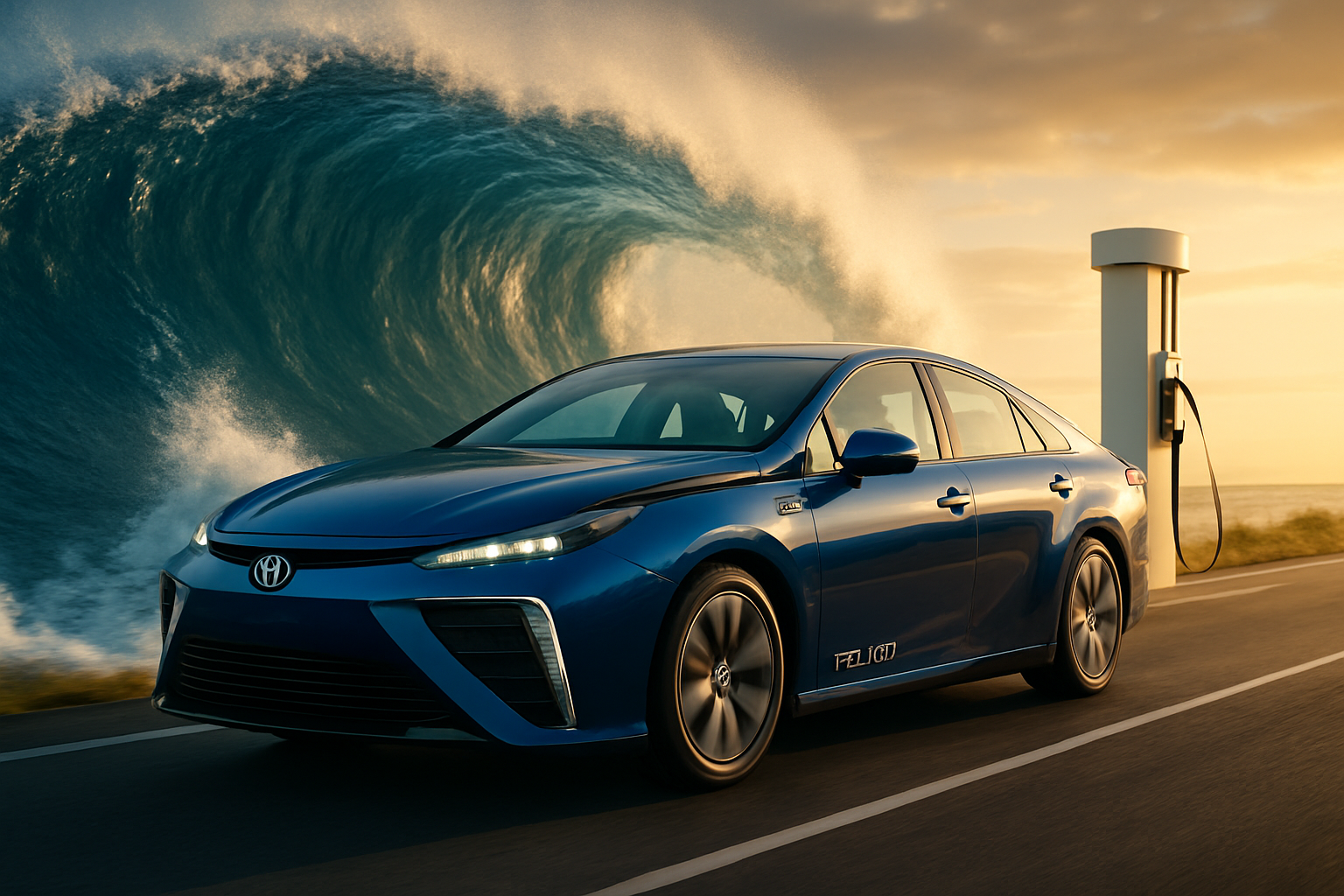Hydrogen Fuel Cell Vehicles: The Next Frontier in Clean Transportation
The automotive world stands on the brink of a major transformation, with hydrogen fuel cell vehicles emerging as a promising solution for sustainable mobility. This groundbreaking technology combines the eco-friendly benefits of zero-emission driving with the convenience of rapid refuelling, potentially revolutionising the way we think about clean transportation. As governments worldwide push for greener alternatives to combat climate change, hydrogen-powered vehicles are gaining traction as a viable option alongside battery electric vehicles. But what exactly are hydrogen fuel cell vehicles, and how might they shape the future of our roads?

Unlike battery electric vehicles, which require lengthy charging times, hydrogen fuel cell vehicles can be refuelled in a matter of minutes, much like conventional petrol or diesel cars. This quick turnaround time, coupled with longer driving ranges, makes hydrogen fuel cell technology particularly attractive for long-distance travel and commercial applications.
A Brief History of Hydrogen in Transportation
The concept of using hydrogen as a fuel source is not new. In fact, it dates back to the early 19th century when Swiss inventor François Isaac de Rivaz created the first internal combustion engine powered by a mixture of hydrogen and oxygen. However, it wasn’t until the late 20th century that hydrogen fuel cell technology began to gain serious attention in the automotive sector.
In the 1960s, General Motors developed the first modern fuel cell vehicle, the Electrovan. This prototype, while never reaching production, laid the groundwork for future developments. The 1990s saw a resurgence of interest in hydrogen technology, with major automakers investing in research and development. Today, companies like Toyota, Honda, and Hyundai are at the forefront of hydrogen fuel cell vehicle production, with models like the Toyota Mirai and Hyundai Nexo already on the roads in select markets.
Current State of Hydrogen Fuel Cell Technology
While hydrogen fuel cell vehicles are still in their infancy compared to conventional internal combustion engine cars, significant progress has been made in recent years. The technology has advanced to a point where hydrogen-powered vehicles can offer performance comparable to their petrol counterparts, with some models boasting impressive acceleration and top speeds.
One of the key advantages of hydrogen fuel cell vehicles is their range. Many current models can travel over 300 miles on a single tank of hydrogen, surpassing the range of many battery electric vehicles. This extended range, combined with quick refuelling times, makes hydrogen-powered cars an attractive option for consumers who frequently undertake long journeys or have concerns about the practicality of battery electric vehicles.
Infrastructure Challenges and Solutions
Despite the promising aspects of hydrogen fuel cell technology, widespread adoption faces a significant hurdle: the lack of refuelling infrastructure. Unlike the electrical grid, which is ubiquitous in developed countries, hydrogen refuelling stations are still few and far between. This chicken-and-egg problem has slowed the rollout of hydrogen vehicles, as consumers are hesitant to purchase vehicles they may struggle to refuel.
However, governments and private companies are beginning to invest heavily in hydrogen infrastructure. Countries like Japan, Germany, and South Korea are leading the charge, with ambitious plans to build extensive networks of hydrogen refuelling stations. In the UK, initiatives like the H2Mobility project aim to establish a robust hydrogen infrastructure to support the growth of fuel cell vehicles.
Environmental Impact and Sustainability
One of the most compelling arguments for hydrogen fuel cell vehicles is their potential to significantly reduce greenhouse gas emissions. When powered by hydrogen produced from renewable sources, these vehicles offer truly zero-emission transportation. This makes them an attractive option for countries and cities looking to meet ambitious climate targets.
However, it’s important to note that the current methods of hydrogen production are not always environmentally friendly. Much of the hydrogen used today is produced through steam reforming of natural gas, a process that still results in carbon emissions. For hydrogen fuel cell vehicles to reach their full potential as a clean energy solution, investment in green hydrogen production methods, such as electrolysis powered by renewable energy, is crucial.
The Role of Hydrogen in Commercial Transportation
While much of the focus on hydrogen fuel cell technology has been on passenger vehicles, the commercial sector presents some of the most promising applications. Long-haul trucking, in particular, stands to benefit greatly from hydrogen power. The high energy density of hydrogen fuel cells makes them well-suited for heavy-duty vehicles that need to cover long distances without frequent stops.
Several major truck manufacturers, including Daimler and Volvo, are developing hydrogen-powered lorries. These vehicles could play a crucial role in decarbonising the logistics industry, which is responsible for a significant portion of global carbon emissions. Additionally, hydrogen fuel cells are being explored for use in trains, ships, and even aircraft, potentially revolutionising multiple modes of transportation.
The Future of Hydrogen in the Automotive Landscape
As we look to the future, it’s clear that hydrogen fuel cell vehicles will play an increasingly important role in the automotive landscape. While they may not replace battery electric vehicles entirely, they offer a complementary solution that addresses some of the limitations of battery technology, particularly for long-distance and heavy-duty applications.
The success of hydrogen fuel cell vehicles will depend on continued technological advancements, infrastructure development, and supportive government policies. As production scales up and costs come down, we can expect to see more hydrogen-powered vehicles on our roads, contributing to a cleaner, more sustainable transportation future.
In conclusion, hydrogen fuel cell vehicles represent a promising frontier in the quest for clean transportation. With their unique combination of zero emissions, long range, and quick refuelling times, they offer a compelling alternative to both conventional and battery electric vehicles. As the technology matures and infrastructure expands, hydrogen-powered cars, trucks, and other vehicles may well become a common sight on our roads, helping to drive us towards a greener future.




